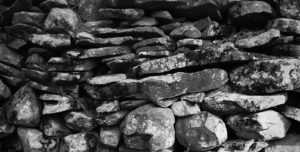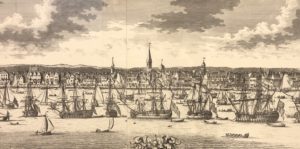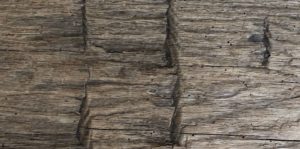2024 Lecture Series
Dr. Owen Stanwood, A French Fabulist in Leisler’s New York: The Extraordinary Adventures of Mathieu Sagean
Thursday, April 25, 2024, 6-7:30 pm.
The Jacob Leisler Institute and the Hudson Area Library will present their second collaborative lecture of 2024, a talk by Dr. Owen Stanwood, Professor of History at Boston College, who explores European fantasies about the American interior in the Age of Leisler.
In 1700, Mathieu Sagean, a Canadian mariner, arrived in France and started telling stories of his discovery of a vast Native American kingdom in the far west, of his adventures across the Atlantic and Indian Oceans and of the controversial administration of a certain New York governor, one “Linsselaer”. His narrative provides a valuable primary account of Leisler’s administration. Though Sagean was an inveterate liar, his report reveals the kinds of stories about Leisler’s New York that circulated in the late-seventeenth-century Atlantic, and how they related to a wider imagined world.
Dr. Simon Middleton, William and Mary, Grain and tobacco, wampum/sewan, and beaver/drielings: making sense of money in seventeenth-century New Netherland and North America”
Thursday, January 25, 2024
The Jacob Leisler Institute and the Hudson Area Library presented their first collaborative lecture of 2024, a talk by Simon Middleton, PhD. and Associate Professor of History at William and Mary, about the diverse types of currency used by early North American settlers.
Middleton discussed the wide variety of coins and commodities used by settlers–everything from coins, grain, tobacco, wampum, and beaver pelts. Historians long have puzzled over the development of these diverse currencies, which the colonists gathered together in conventions referred to as “current money” or money of “this place.”
2023 Lecture Series
Heidi Hill, historic site manager of Crailo and Schuyler Mansion, The Stories We Share: How interpretations of the Past Have Impact.
Thursday, October 5, 6pm
The Jacob Leisler Institute for Early New York History and the Hudson Area library hosted a talk by Heidi Hill, historic site manager of the Crailo and Schuyler Mansions. Ms. Hill detailed how these sites have been at the forefront of interpreting a broader history of the past for the last 20 years. She shared how a more inclusive history has taken shape at these two sites and how it has been received by visitors and a broader audience.
The event was held at the Hudson Area Library, located at 51 North Fifth Street in Hudson, NY.
Carl Whitbeck, Jacob Leisler Institute Trustee (A Descendants of Whaling Masters annual conference event). Hudson and Its Whaling Roots
Thursday, September 14, 6-7:30PM
In collaboration with the Hendrick Hudson Chapter of the DAR and the Hudson Area Library, Mr. Whitbeck presented a discussion focusing upon the year 1783, when whaling families from Nantucket transformed the New York Dutch port town of Claverack Landing into the City of Hudson. A local resident, Mr. Whitbeck’s family with deep roots in the area, he displayed and discussed items from his own extensive local history collection.
The Descendants of Whaling Masters, headquartered in New Bedford, MA, has over 450 members throughout the US. Its mission includes encouraging members to save and preserve their whaling records and artifacts, as well as educating and raising public awareness of the history of whaling and the contemporary issues of whale preservation and ocean conservancy.
The Descendants were aware that, in 1783, members of the Jenkins family and others, including many whalers, had migrated from New Bedford, Providence, and Nantucket, purchasing and settling in what they would soon name Hudson. The Historic Robert Jenkins House at 113 Warren St was built in 1811 by the son of one of those “Proprietors” and is now the chapter house of the Hendrick Hudson Chapter of the National Society Daughters of the American Revolution. Descendants
The event was held at the Hudson Area Library, located at 51 North Fifth Street in Hudson, NY.
Dr David Voorhees. Historian and director of the Jacob Leisler Institute for Early New York History, “Hoe woest de werelt” [“How Savage the World”]: The Role of Women in Leisler’s Rebellion.
Thursday, June 29, 6-7:30 PM
This event was a revision, or rather a critique, of a former talk. One can’t change the past, but one’s interpretation of it should undergo revision as new information raises new questions.
Dr, Voorhees discussed the prominent role women played in the 1689-1691 New York uprising against King James II’s government, popularly known as the “Leisler Rebellion”. Numerous references to female political activism are found in the records of the rebellion. Indeed, historians note that women played a prominent role in the uprising. This presentation explored women’s involvement in New York politics a generation after the English takeover of New Netherland in both the local and broader Atlantic World contexts.
Kate Mulry. Historian, Associate Professor of History at California State University, Bakersfield, author of An Empire Transformed: Remolding Bodies and Landscapes in the Restoration Atlantic (New York University Press, 2021).
Virtual Local History Talk: Draining the Swampish Ground of Colonial New York.
Thursday, April 27, 6-7:30pm
Our April collaboration with Hudson Area Library was a talk by Kate Mulry, exploring why drainage orders were often among the first projects initiated by new English officials in colonial New York.
In the late seventeenth-century the English sought to bring political order to the empire through projects of environmental improvement. By ordering swamp and marshland drainage, officials sought to remake places they worried were unhealthy, unruly, and unproductive. At the same time, they expected to transform the residents of those places. The presentation highlighted changing ideas about nature, governance, and public health in the early modern Atlantic World.
Peter G. Rose, Culinary Historian The History of Chocolate in the Hudson Valley
Saturday, February 11, 1:00pm
The Jacob Leisler Institute and the Hudson Area Library were excited to present their first collaborative lecture of 2023: The History of Chocolate in the Hudson Valley, with Peter G. Rose, culinary historian.
Ms. Rose discussed the early trade by the Valley’s Dutch settlers in the 17th century and the subsequent manufacturing developments of chocolate throughout the 18th century into the late 19th century. Free samples of locally made chocolate from Verdigris Tea & Chocolate Bar and other local businesses at the event were available to the participants.
The event was held at the Hudson Area Library, located at 51 North Fifth Street in Hudson, NY.
2022 Lecture Series
Patricia U. Bonomi Colonial New York as a Model for our Nation
Thursday, October 27, 6-7:30pm
The Hudson Area Library History Room and the Jacob Leisler Institute for Early New York History presented a special in-person talk with Dr. Patricia Bonomi about colonial New York on Thursday, October 27, at 6pm. The Hudson Area Library is located at 51 North Fifth Street in Hudson, NY.
Colonial New York contributed vitally to the formation of the United States, as did New England or the colonial South, although historians have been slow to acknowledge those contributions. The discussion will highlight the special significance of New York’s religious and racial diversity, its unique geography, and its tumultuous politics.
Dr. Patricia U. Bonomi is Professor Emerita at New York University, where she taught American history for 27 years, specializing in the colonial and early national periods. She is a Guggenheim Fellow and a Fellow of the Seminar on Early American History & Culture at Columbia University, where she earned her Ph.D. in 1970. Her books include A Factious People: Politics and Society in Colonial New York; Under the Cope of Heaven: Religion, Society, and Politics in Colonial America; and The Lord Cornbury Scandal: The Politics of Reputation in British America.
Linford D. Fisher The Persistence of Indigenous Enslavement in Dutch and English New York and New Jersey
Thursday, June 9, 6-7:30pm
Indigenous peoples played important roles in the histories of Dutch colonialism and the colonies that later became New York and New Jersey. This public talk delved into one aspect of these histories and interactions, namely, the enslavement (and, at times, transshipment) of local Indigenous populations. Drawing upon colonial records and newspaper ads, Fisher argues that enslaved Indigenous people were present in these places far longer than we might expect and in ways that suggest a more diverse enslaved and unfree labor force than we have previously imagined.
Dennis Maika Reconsidering Slavery in 17th century New Netherland – What do We Know? What Can We Learn?
Thursday, April 28, 6-7:30pm
There has been a glaring gap in today’s important and critical discussion of American slavery and its legacy: an accurate understanding of the lives of enslaved people and their enslavers in the Northern colonies and how their experiences contributed to the institution of American slavery. Many Americans are surprised to learn of the existence of Northern slavery and New Yorkers may be stunned to learn that slavery was deeply entwined in their colonial and state history. The purpose of this talk was to provide a broader historical context in which to consider some of these new revelations and the questions they raise. Hopefully, a better appreciation of slavery in New Netherland will stimulate a more accurate and comprehensive understanding of American slavery.
David Voorhees Jacob Leisler: Fanatic or Martyr: a Library & Leisler Institute Talk
Thursday, January 28 6-7:30pm
The Hudson Area library’s History Room in collaboration with the Jacob Leisler Institute for the Study of Early New York History presents Fanatic or Martyr: Jacob Leisler, a Window into an Age, a talk by Dr. David Voorhees. On May 16, 1691, Jacob Leisler, de facto governor of New York, was hung til half-dead then beheaded before the largest gathering in New York City up to that date. Leisler’s administration had created a bitter division in New York. This presentation looks at how the deep emotions Jacob Leisler aroused reveal much about the milieu in which he lived and continued to echo in historical evaluations. Moreover, Leisler’s immediate family and their households of servants and enslaved persons, their trade and marital connections, and their actions provide insights into the broader social, ideological, economic, artistic, and political events of colonial New York and its place in the larger world at a time of tremendous change
2021 Lecture Series
Noah Gelfand “To Trade, Traffique, Buy & Sell as the Rest of the Inhabitants: Jewish commercial and Communal Activities in Colonial New York”
October 7, 2021, 6-7:30pm
On Thursday, October 7th, The Hudson Area Library History Room presented, in collaboration with the Jacob Leisler Institute for the Study of Early New York History, “To Trade, Traffique, Buy & Sell as the Rest of the Inhabitants: Jewish commercial and Communal Activities in Colonial New York”, a talk by Dr. Noah Gelfand. This was the fourth in a series of virtual talks on local history hosted by the Library and the Leisler Institute.
The talk explores the economic and religious endeavors of New York’s growing Jewish population in the era when they developed the colony into one of the most important locations for Jews in the Atlantic world.
Evan Haefeli The Mohicans’ Incorporation into the Iroquois League, 1671-1675
Thursday, June 24, 6-7:30pm
Evan Haefeli, historian of colonial North America and the Atlantic world at Texas A&M University, will deliver our June local history talk at the Hudson Area Library library. This talk derives from one of Dr. Haefeli’s current research projects on the history of the Iroquois Confederacy’s relations with its Indigenous neighbors to the east and south, especially the people of the Hudson Valley. The incorporation of the Mohicans into the Iroquois League has remained obscured but was pivotal to the history of the colonial northeast. It explains why the Mohicans and Munsee neighbors did not join in King Philip’s War and so prevented that conflict from spilling over into the Hudson Valley. It also clarifies the nature of Indigenous politics in the region in the era of Jacob Leisler.
Dr. Evan Haefeli has a particular interest in the political, religious, Indigenous, and imperial history of the colonial northeast. Born and raised on eastern Long Island, New York, he previously taught at Princeton University, where he received his PhD, as well as Tufts, Columbia University, and the London School of Economics. He has held a variety of fellowships, most recently from the NEH. His published books relating to colonial American and early New York history include New Netherland and the Dutch Origins of American Religious Liberty, Accidental Pluralism: America and the Religious Politics of English Expansion, and (with Kevin Sweeney), Captors and Captives: The 1704 French and Indian Raid on Deerfield.
For Zoom registration link click here or contact Brenda Shufelt at 518-828-1792 x106 or brenda.shufelt@hudsonarealibrary.org.
Ian Mumpton: Coping with Life’s Necessaries
Thursday, April 29, 6-7:30pm
The Jacob Leisler Institute for the Study of Early New York History and the Hudson Area Library present Coping with Life’s Necessaries by Ian Mumpton.
Closely intertwined with Jacob Leisler through marriage and as bitter opponents in 1689s, the Schuyler family enjoyed many luxuries as part of their refined lifestyle. What did their hygiene practices look like? Learn more about the changing practices of this aristocratic, 18th century colonial Dutch family with this Schuyler Mansion program come to Hudson. A question-and-answer period will follow the talk.
The presenter, Ian Mumpton, is the Historic Site Assistant at Schuyler Mansion State Historic Site. His work focuses on highlighting underrepresented narratives as essential parts of the site’s history, including the stories of Loyalists, Native Americans, women, tenant farmers, and enslaved people of African descent. He is also currently researching the martial arts and martial identity of colonial New Netherland.
The Jacob Leisler Institute–Hudson Area Library Lectures are made possible through the generous support of the Van Dyke Family Association. This lecture is the second of four collaborations this year between the two organizations, each featuring an expert in early colonial history.
2020
Steve McErleane: Imagination Aided by the Painter’s Brush: The Creation of the Purchase of Manhattan, 1844–1909. (October 22)
Though it is now known as a fundamental piece of the early history of the city, it was not until 217 years after the event that New Yorkers first learned of the now infamous 1626 purchase of the island of Manhattan by the Dutch from the Indians for twenty-four dollars. This talk traced the construction of that story from its first appearance in the 1840s to an important and overlooked 1853 painting of the purchase by the American artist William Ranney and beyond.
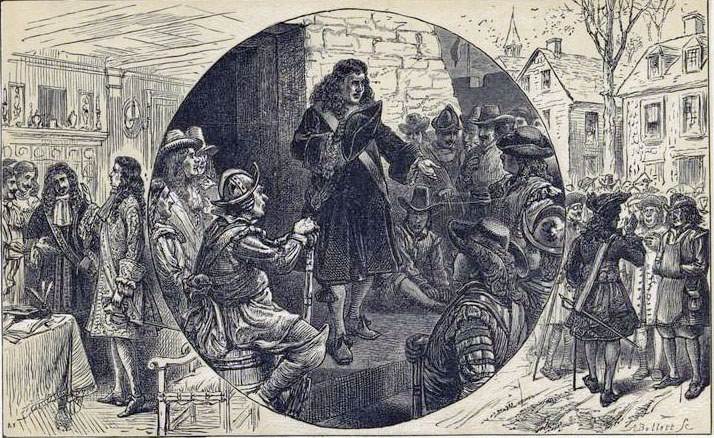
Dr. David William Voorhees: Colonial New York Censuses: the several places where the inhabitants were dwelling. (January 9)
Since ancient times, societies have kept counts of their population for administrative purposes. This lecture explored when, how, and why population surveys took place in colonial New Netherland and New York, with a specific focus on Claverack Landing, as Hudson was known before it was named Hudson. The lecture was a precursor to the History of the Census in Hudson exhibition, which opened at the Hudson Area Library in February.
2019
Travis Bowman: Slavery and Dutch – Palatine Farmers: How did middle class farmers in Colonial New York interact with slavery? (September 12)
In New York State slavery existed for 200 years, and recent interest and research, particularly focused on the Hudson Valley area, confronts this fact. This lecture examined how slave labor led to prosperity for many white families in the region and also may have eventually influenced the abolition movement.
Ian Stewart: A Truly American Form: Anglo Dutch Houses, Their Roots, Form, and Legacy. (June 13)
In the former New Netherland a new house form arose in the latter years of the 18th century and became a common sight in New England in the first half of the 19th century. This talk focused on the framing of these houses and their various forms, as well as their English and Dutch predecessors, and the circumstances which may have led to the creation of this hybrid.
Dr. Lou Roper: Colonial New York and the World of Jacob Leisler. (March 21)
Starting with the question, “[w]here does the history of New York fit into the history of colonial America and where does the history of colonial America fit into the history of the wider world?” this lecture looked at the 17th-century European colonization of the greater Hudson Valley and what its history suggests about the character of early Americans.
2018
Peter G. Rose: A Taste of Change. (June 21)
Cookbooks and scrapbooks tell us a lot more than just how a dish is made. What recipes are included might give an indication of a family’s ethnicity and how that ethnicity was retained over generations through the continuation of customs and celebrations. Using her knowledge of Dutch customs and food history, food historian Peter G. Rose presented examples of recipe/scrapbooks, with Dutch recipes, from the late 17th century to the 20th century.
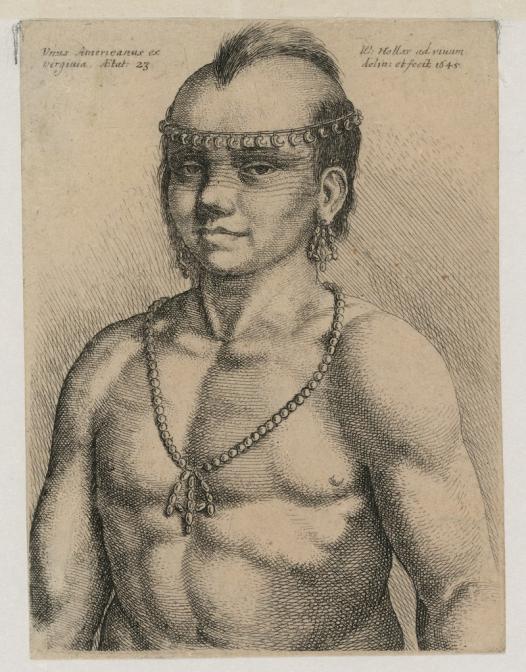
Dr. William Starna: American Indians in the Mid-Hudson Valley. (April 19) This lecture focused on the Iroquoian and Algonquian peoples of Eastern North America and their culture and society.
Dr. David William Voorhees: Libelers, Monsters, and Rebels:The Jacob Leisler Institute and Research into Colonial New York’s Neglected English Colonial Period. (February 22)
The Institute thanks filmmaker Dan Udell for producing a video of this talk.

